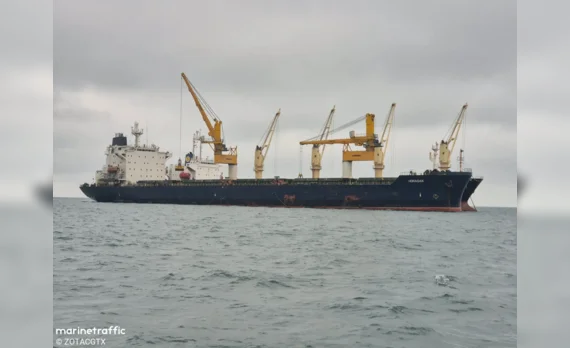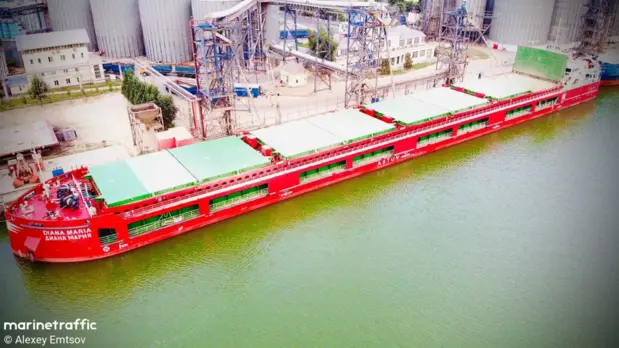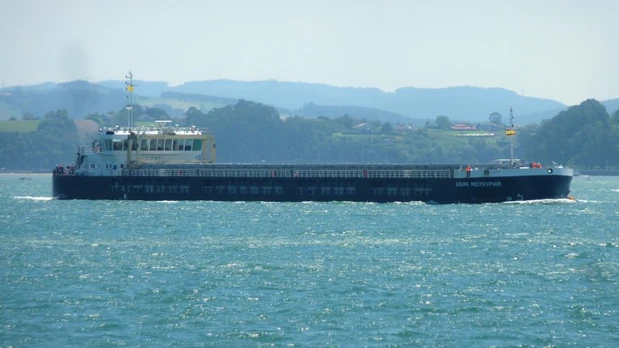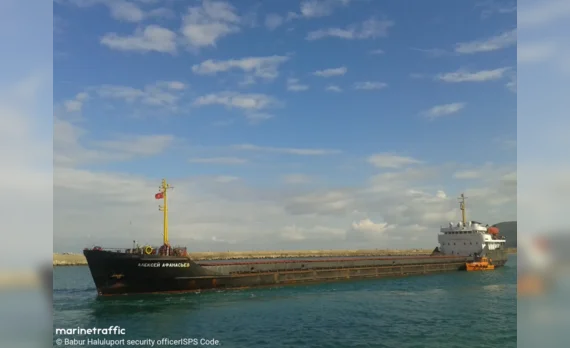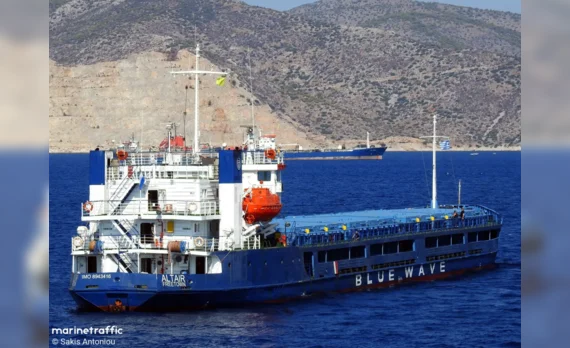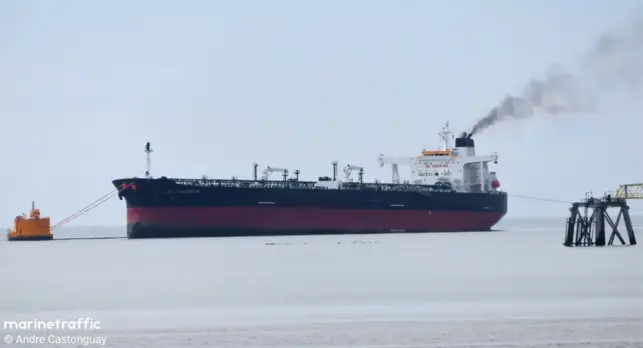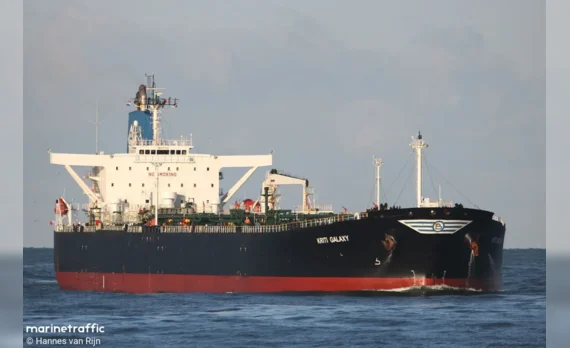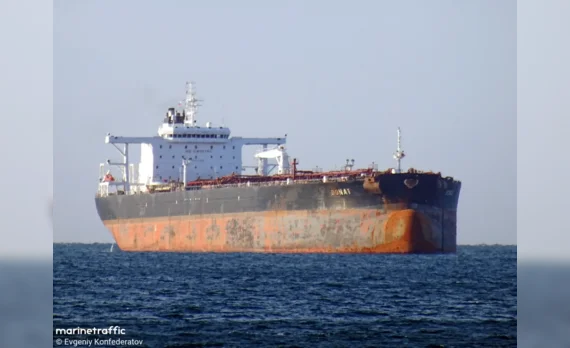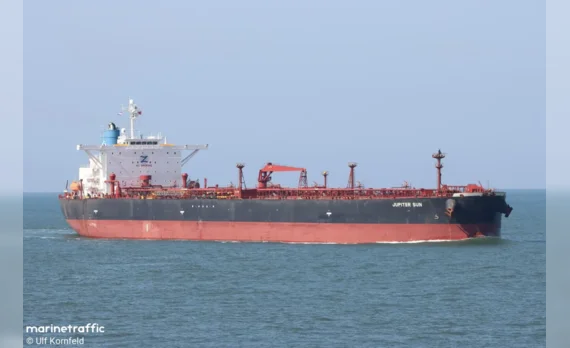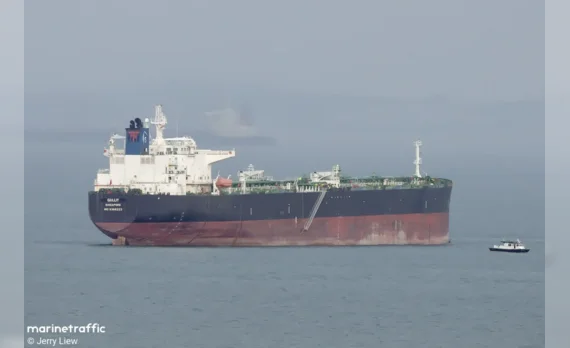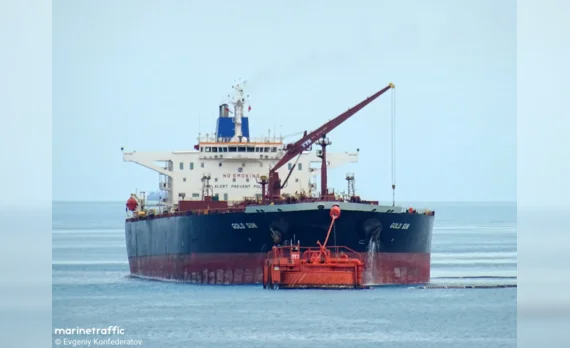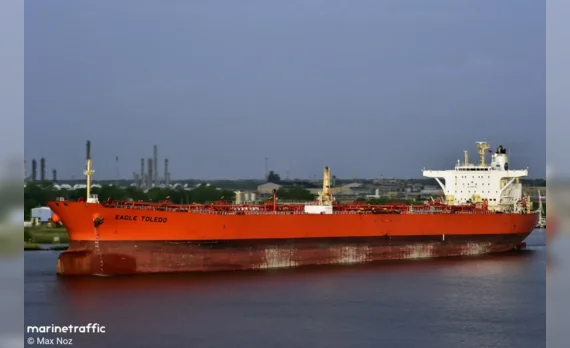The tanker is involved in the export of russian oil from russian ports in the Black and Baltic seas to third countries, as well as to the EU countries, in violation of the g7 and EU oil embargo on russian oil. In particular, in August 2024, the vessel transported russian oil from the port of Tuapse ( russia) to the EU countries to the area south of the Laconian gulf, west of the island of Kithira.
The vessel is certified by the Indian regulator Indian Register of Shipping (IACS).
The international public organization Greenpeace refers to the tanker as a shadowy fleet of tankers transporting russian oil around the world and threatening the environment.
The tanker is affiliated with the Indian company Gatik Ship Management, one of the leading operators of the so-called 'shadow' fleet involved in the transportation of russian crude oil under Western sanctions, and the Gatik-related company Gaurik Ship Management LLP, which in 2023, together with Caishan Ship Management, Galena Ship Management, Plutos Ship Management, Geras Ship Management, Girik Ship Management, Orion Ship Management LLP, Nautilus Shipping (India), Ark Seakonnect Shipmanagment LLC, Zidan Ship Management, was involved in a scheme to 'juggle' vessels managed by Gatik Ship Management to avoid sanctions.
Gatik Ship Management and Gaurik Ship Management LLP were the previous managers of the tanker 'GOLDEN MILE'.
Tankers operated/managed by the Indian Gatik Ship Management continue to be used by related companies and call at russian ports.
Against the backdrop of sanctions, russia is using a scheme of 'juggling' ships between related companies to conceal oil exports outside the price cap and other restrictions, as well as to conceal the real owners of ships, and to ensure unimpeded transportation of fossil fuels by a 'shadow' fleet of obsolete oil tankers, creates new companies for these purposes (in the UAE, Hong Kong, India, Turkey, Mauritius, Seychelles, and other jurisdictions) with non-transparent organizational and ownership structures. In order to implement this scheme, technical/commercial management and ship owners are constantly changing, and vessels are renamed with a change of flag, MMSI, call-sign, including for sanctioned vessels. Shadow fleet vessels operate under 'convenient flags', which allows them to conceal their true origin and avoid control by international organizations and insurance companies.
Almost all vessels involved in the transportation of russian oil by the shadow fleet since 2022 have been certified by the Indian regulator Indian Register of Shipping (IACS). The certification of shadow fleet vessels allows the shipowner/operator to insure the vessels, which, in turn, allows the vessels to enter ports and pass through various specific sea routes (straits, canals, etc.).
The 'shadow' fleet, transporting huge volumes of crude oil through heavily trafficked routes through narrow straits close to the coastline, without proper P&I insurance, with automatic identification systems disabled, threatens an environmental disaster with significant economic costs to be borne by the affected coastal countries and/or the international community. The recent incidents off Malaysia only underscore the need for swift action to curb the potentially devastating impact of the growing 'shadow fleet'. 'Shadow' tankers have already been involved in 50 incidents from the Danish Straits all the way to Malaysia since russia's full-scale invasion of Ukraine.
According to CREA, from January to August 2024, the number of shadow tankers crossing the Danish Straits in Europe increased by 277% compared to the same period in 2022, with 64% of the 46 million tons of russian marine oil transported through the Danish Straits being transported by shadow tankers. In the same period, the number of shadow tankers in the Straits of Dover and Gibraltar increased by 355% compared to 2022, transporting 67% of the 37 million tons of oil through the straits. The Suez Canal experienced a staggering 649% increase in shadow tanker traffic, with 69% of the 52 million tons of russian crude oil passing through it being transported by these vessels.
Thus, the 'shadow fleet' of the russian federation continues to provide multibillion-dollar revenues for the kremlin bypassing sanctions, disguising its activities under the flags of third countries, using complex schemes to conceal owners, and poses significant threats to environmental safety with significant economic costs for coastal countries and/or the international community due to the outdated and inadequate insurance of shadow fleet tankers.
On February 24, 2025, the United Kingdom imposed sanctions on the vessel.
On April 11, 2025, Ukraine imposed sanctions on the master of vessel IMO 9337901.
In June 2025, Canada imposed sanctions on the vessel.
In June 2025, Australia imposed sanctions on the vessel.
